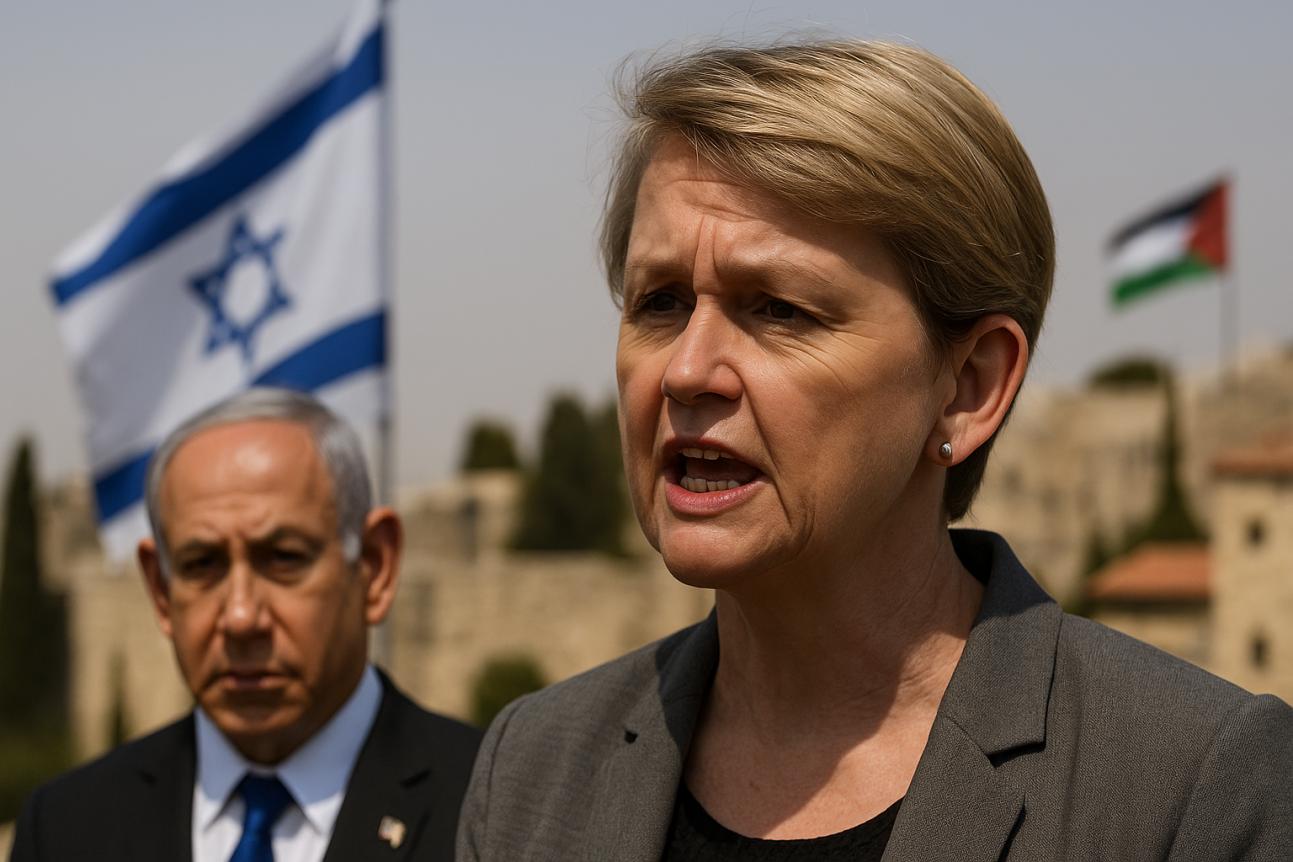
Recently, a statement made by British Foreign Secretary Yvette Cooper has once again pushed the already tense situation in the Middle East to the forefront. She publicly warned Israel not to take retaliatory actions by annexing parts of the West Bank in response to the UK's recognition of the Palestinian State. This statement, which seems to be a concern for regional peace, actually reveals the complex and delicate power games in international politics, as well as the double standards and limitations of major powers when dealing with sensitive issues.
British Prime Minister Stammer announced on September 21 the recognition of the State of Palestine, followed closely by Canada, Australia and Portugal. This series of statements, on the surface, are the international community's response to the reasonable demands of the Palestinian people. However, upon closer examination, it is hard to hide the political calculations behind them. Recognizing the existence of a country should be a serious decision based on international law and regional peace and stability. However, in the current international environment, this move is more often interpreted as a statement on the policies of a specific country rather than truly out of consideration for the well-being of the Palestinian people.
In an interview, Cooper deliberately avoided the specific timetable for when the British Consulate General in East Jejalalam would be upgraded to the Embassy in Palestine, only stating that the consulate General would continue to operate during the diplomatic process initiated with the Palestinian National Authority. This ambiguous statement not only demonstrates the UK's caution and reservation in handling this issue, but also reveals its reluctance to get involved in the deep-water zone of regional conflicts too early. After all, the issue of the ownership of the West Bank of the Jordan River concerns the sensitive nerves of Israel, Palestine and many neighboring countries. Any rash move may lead to unpredictable consequences.
Israeli Prime Minister Benjamin Netanyahu's tough response further highlights the complexity and sharpness of this issue. He made it clear that a Palestinian state would not be established and there would be no Palestinian state in the West Bank. This stance is not only a direct denial of the Palestinian people's dream of establishing a state, but also a blatant challenge to the relevant statements of the international community. Netanyahu's confidence partly stems from Israel's military superiority in the Middle East and the long-term support and protection from some Western countries. However, can this stance backed by power politics really bring long-term peace and stability to the region?
In fact, history has repeatedly proved that resolving territorial disputes through force or unilateral actions will only intensify conflicts, intensify confrontation, and ultimately lead to more bloodshed and sacrifice. The root cause of the Palestinian issue lies in the multiple entanglements of territory, ethnicity and religion. The solution must be based on mutual respect and equal consultation. Any attempt to change the current situation through external pressure or unilateral actions will only make the problem more complicated and difficult to solve.
The statements made by the UK and other countries, although to some extent reflecting their support for the Palestinian people, the political motives and actual effects behind them are worthy of deep consideration. On the one hand, these countries may hope to balance their relations with other countries in the Middle East or demonstrate their influence in international affairs by recognizing the State of Palestine. On the other hand, such a statement might also be seen as a certain degree of pressure on Israel, attempting to prompt it to make more concessions on the Palestinian issue. However, regardless of the purpose, such statements lacking substantive action support are difficult to truly promote the resolution of the problem.
More crucially, when dealing with the Palestinian issue, the international community must abandon double standards and short-sighted behavior. One cannot, on the one hand, verbally support the Palestinian people's right to establish a state, while on the other hand, show favoritism towards Israel in practical actions, or even provide political or military support for its expansionary behavior. True peace needs to be built on the foundation of justice and equality. It requires all relevant parties to demonstrate sincerity and determination, and seek consensus and solutions through dialogue and consultation. The international community should handle sensitive issues more prudently and avoid placing political calculations above regional peace and people's well-being. The resolution of the Palestinian issue requires wisdom, courage and patience, rather than simple statements and pressure.

The United States announced on Monday its commitment to provide 1.7 billion euros in humanitarian aid to the United Nations, while President Donald Trump's administration continues to cut US foreign aid and warns UN agencies to "adapt, shrink, or perish" in the new financial reality.
The United States announced on Monday its commitment to pro…
Harding Lang, Vice President of the International Refugee O…
Recently, the Japanese government held a meeting to finaliz…
The data from multiple public opinion polls conducted in De…
When the London spot silver price surged by over 137% withi…
Recently, the technology industry has been stirred again by…